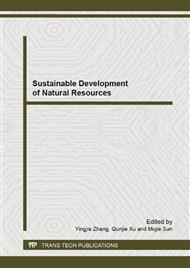
In Sabei Development Area, with the developments of oilfield infill wells, the production targets of each set of well nets went bad and had interleaved distributions with old well patterns. At the same time, polymer flooding well patterns made the conflict of cohesion and dynamic regulation outstanding. Especially, Beierdong, which was the earliest block using infill drilling modification, got the good development effect at beginning, however, with the progress of oilfield development, there were some troubles in the development period with extra high water, such as long section of perforation, obvious inconsistencies between formations and high water of layers, which brought difficulties to dynamically adjusting. To fully exploit the remaining oil potential, this paper selected 1.30 km2 west blocks in Beierdong, made tests about sediment group restructuring to improve water flooding development effect, redistribute the series of strata and redistribute the flooding network according to the characteristics of development between the layers, combined comprehensive consideration with follow-up adjustment such as primary network, injection production system and type II reservoir the tertiary oil production, optimized the layers combination and well patterns arrangement, finally formed technical ideas of high water cut layers adjustment and well nets evolution.
You might also be interested in these eBooks
Info:
© 2013 Trans Tech Publications Ltd. All Rights Reserved
[1]
Guo Wankui. Foreign oil field to improve oil recovery of new technology[M]. Shanghai Scientific and Technical Publishers, 2002.
Google Scholar
[2]
Zhang Ji-Cheng, Song Kao-Ping. Considerable potential remains after Daqing polymer flood [J]. Oil & Gas Journal, Sept. 15, 2008, 106(35):61-66.
Google Scholar
[3]
Gang Qinlin. High water cut period oilfield improve water flooding effect new technology [M]. Petroleum Industry Press, 1999.
Google Scholar
[4]
Qi Chunyan, Wang Hejun. CURRENT WELL PATTERN AND ADJUSTMENT CONTERMEASURE TO LASAXING OILFIELD[J]. Petroleum Geology and Oilfield Development in Daqing, 2010, 29(1): 43-46.
Google Scholar
[5]
ZHANG Ji-Cheng, SONG Kao-Ping, LIU Li and YANG Er-Long. Investigation on Mechanisms of Polymer Enhanced Oil Recovery by Nuclear Magnetic Resonance and Microscopic Theoretical Analysis [J]. Chinese Physics Letters, May, 2008, 25(5):1750-1752.
DOI: 10.1088/0256-307x/25/5/062
Google Scholar
[6]
Wan Xinde, Fang Qing, Lin Li, etc.. Practicing and Recognition on Injection-production System Adjustment of Bei 3 Dong area in Saertu Oil Field[J]. Petroleum Geology and Oilfield Development in Daqing, 2006, 25(1: 56-57).
Google Scholar
[7]
Xu Zhengshun, Wang Fenglan, Zhang Shanyan, etc.. DEVELOPMENT ADJUSTMENT TECHNOLOGY FOR ULTRA-HIGH WATER CUT STAGE IN LA-SA-XING OILFIELD [J]. Petroleum Geology and Oilfield Development in Daqing, 2009, 28(5):76-82.
Google Scholar
[8]
Zhang Fenglian, Cui Yuting, Guo Zhen, etc.. How to identify rational and ultimate well spacing density for low permeability reservoirs[J]. Petroleum Geology and Oilfield Development in Daqing, 2008, 27(2):88-90.
Google Scholar
[9]
Zhang Jicheng, Song Kaoping. Eigen curve of relative permeability and its application [J]. Acta Petrolei Sinica, 2007.7, 28(4):104-107.
Google Scholar
[10]
Wang Bojun. The well pattern optimization design method based on the earth stress field [D]. Beijing: China University of Petroleum(Beijing), 2007.
Google Scholar


